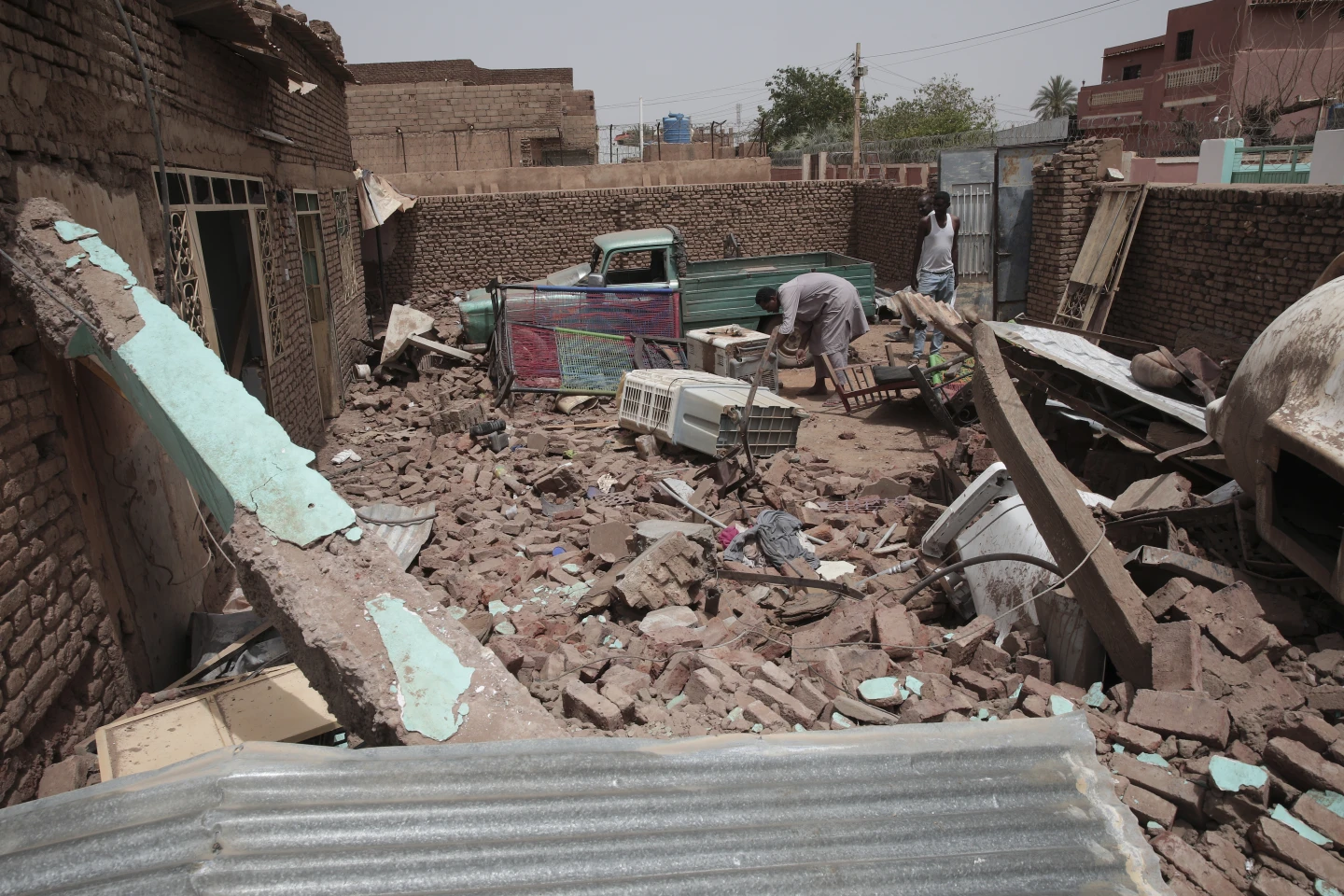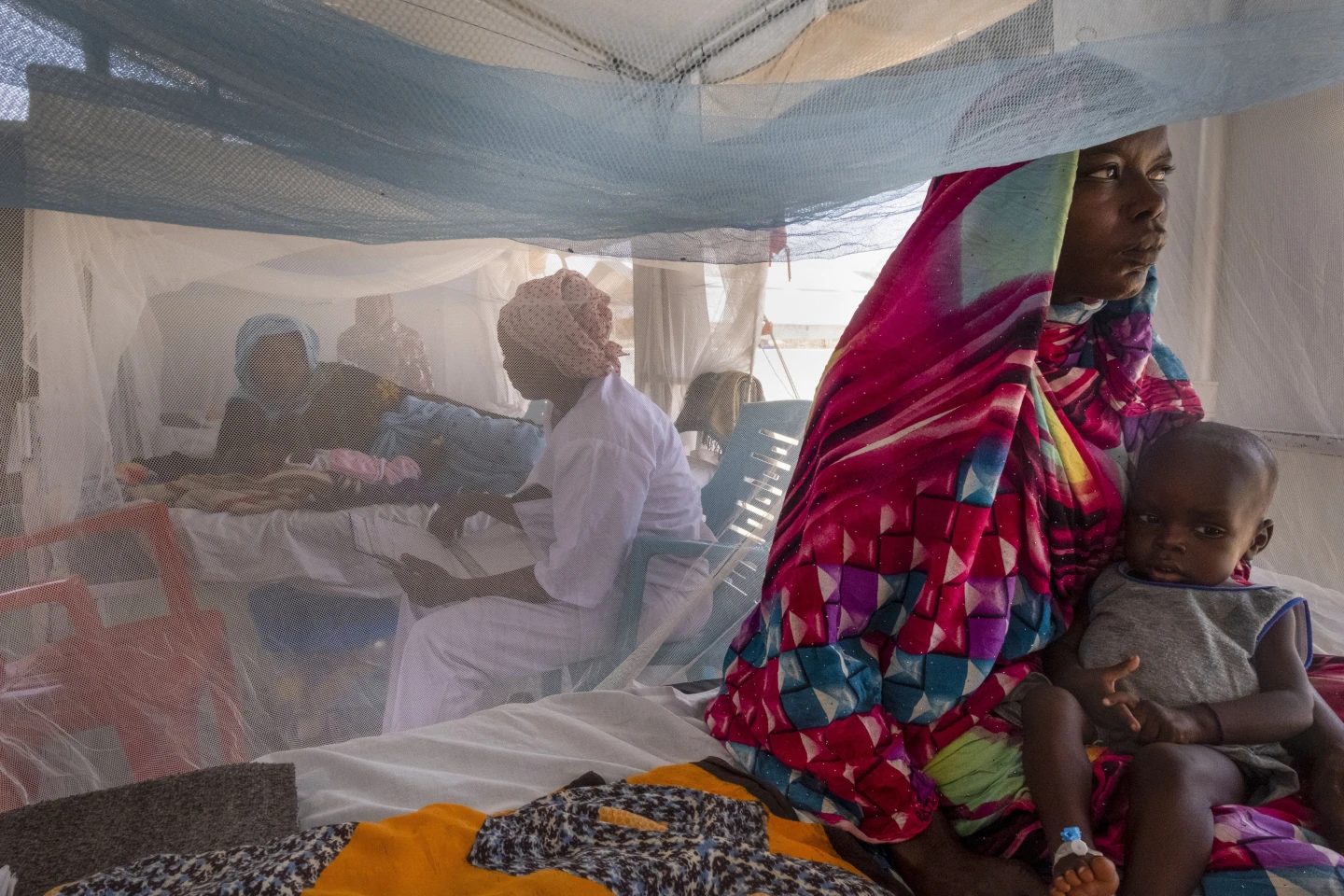CAIRO (AP) — As Sudan marks two years of civil war on Tuesday, atrocities and famine are only mounting in what the UN says is the world’s worst humanitarian crisis.
Last month, the Sudanese military secured a major victory by recapturing the capital of Khartoum from its rival, the paramilitary Rapid Support Forces. But that has only moved the war into a new phase that could end up with a de facto partition of the country.
On Friday and Saturday, RSF fighters and their allies rampaged in two refugee camps in the western Darfur region, killing at least 300 people. The Zamzam and Abu Shouk camps, which shelter some 700,000 Sudanese who fled their homes, have both been stricken with famine, and aid workers cannot reach them because of the fighting.
Half the population of 50 million faces hunger. The World Food Programme has confirmed famine in 10 locations and says it could spread, putting millions in danger of starvation.

Here is what is happening as the war enters its third year:
Carving up Sudan
The war erupted on April 15, 2023, with pitched battles between the military and the RSF in the streets of Khartoum that quickly spread to other parts of the country.
It was the culmination of months of tension between the head of the military, Gen. Abdel-Fattah Burhan, and the RSF’s commander, Mohammed Hamdan Dagalo. The two were once allies in suppressing Sudan’s movement for democracy and civilian rule but turned on each other in a struggle for power.
The fighting has been brutal. Large parts of Khartoum have been wrecked. Nearly 13 million people have fled their homes, 4 million of them streaming into neighboring countries. At least 20,000 people have been recorded killed, but the true toll is probably far higher.
Both sides have been accused of atrocities, and the RSF fighters have been notorious for attacking villages in Darfur, carrying out mass killings of civilians and rapes of women.
The military’s recapture of Khartoum in late March was a major symbolic victory. It allowed Burhan to return to the capital for the first time since the war started and declare a new government, boosting his standing.
But experts say the RSF consolidated its hold on the areas it still controls — a vast stretch of western and southern Sudan, including the Darfur and Kordofan regions. The military holds much of the north, east and centre.
Neither side appears able to defeat the other.
The RSF is weakened by internal fissures and “lacks political legitimacy within the country,” said Sharath Srinivasan, professor of international politics at Cambridge University.
Famine is deepening
Hundreds of thousands of people trapped by the fighting face hunger and starvation. So far, the epicentre of famine has been in the North Darfur province and particularly the Zamzam camp. The RSF has been besieging the camp as it wages an offensive on El Fasher, the regional capital and the last main position of the military in the Darfur region.
Since famine was first declared in Zamzam in August, it has spread to other parts of the province and nearby South Kordofan province.
The WFP warned this week that 17 other locations will also soon fall into famine — including other parts of the Darfur region but also places in central and south Sudan — because aid workers cannot reach them.
Already, at least 25 million people, more than half of the country’s population, face acute hunger, including 638,000 who face catastrophic hunger, the most dire rating used by aid agencies, according to the WFP. Some 3.6 million children are acutely malnourished.

The needs everywhere are huge
In other areas, the military’s capture of territory allowed aid groups to reach refugees and displaced people who have been largely cut off from aid for two years.
Sudan has been hit by multiple outbreaks of cholera, malaria and dengue in the past two years. The latest cholera outbreak in March killed about 100 people and sickened over 2,700 others in the White Nile province, according to the Health Ministry.
The economy has been decimated, with a 40 per cent drop in GDP, according to the United Nations’ Development Program, UNDP. Full-time employment has been halved and almost 20 per cent of urban households reported that they have no income at all, it said.
At the same time, UN agencies and aid groups have faced funding cuts from major donors, including the United States. Only 6.3 per cent of the USD4.2 billion required for humanitarian assistance in Sudan this year has been received as of March, said Clementine Nkweta-Salami, the UN humanitarian coordinator in Sudan.
About 400,000 people managed to return to their hometowns in areas retaken by the military around Khartoum and nearby Gezira province, according to the UN migration agency.
Many found their homes destroyed and looted. They depend largely on local charities for food.


